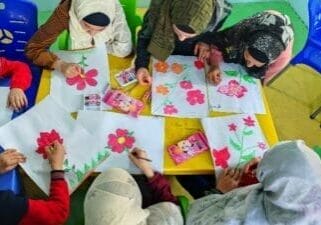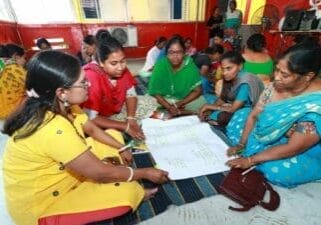News > Blog
How the Jordan Loan Guaranty Facility is Helping Small Businesses in Jordan Access the Finance They Need to Grow
Published 08/25/2016 by Global Communities
How the Jordan Loan Guaranty Facility is Helping Small Businesses in Jordan Access the Finance They Need to Grow
This article first appeared on the OPIC Blog | By Adnan Afaneh, Head of Credit, Jordan Loan Guarantee Facility
Despite their importance in supporting both sustainable economic growth and job creation in emerging countries, small and medium size enterprises (SMEs) continue to face significant challenges when applying for bank credit. In Jordan, a recent report by the European Bank for Reconstruction and Development, the European Investment Bank, and the World Bank Group concluded: “Almost a third of all Jordanian firms report access to finance as the top obstacle to their operations.” High interest rates and an emphasis on excessive collateral requirements are the main two reasons for the estimated SME financing gap of $3 billion (Union of Arab Banks/World Bank Financial Flagship Report 2011). This lack of access to credit stifles growth in a critical sector, negatively impacting the economy and, at a high level, helping to contribute to instability in the region.
BY THE NUMBERS
JORDAN LOAN GUARANTY FACILITY
4.3% is the JLGF portfolio NPL ratio
33% of small and medium enterprises in Jordan see access to finance as their greatest challenge
$250 million is the OPIC commitment in Jordan
3,512 hours of training provided by the JLGF
44% of loans are for businesses located outside of the capital and or for women-owned enterprises
To enhance access to finance for Jordanian SMEs, outside interventions have been made to fill market gaps. On the demand side, the World Bank and Arab Fund, for starters, made efforts to reduce the cost of borrowing for SMEs. On the supply side, Global Communities, created the Jordan Loan Guaranty Facility (JLGF) in coordination with the U.S. Agency for International Development (USAID) and the Overseas Private Investment Corporation (OPIC), the U.S. Government’s development finance institution. The $250 million loan facility was designed to help encourage banks to lend to SMEs in Jordan by providing partial loan guarantees to the banks making the loans.
The JLGF Impact
IMPACT AND RESULTS
JORDAN LOAN GUARANTY FACILITY
$87 million disbursed amount
324 number of guaranteed loans
16% women-owned and women-led businesses
10% start-up businesses
3,200 number of jobs created
28% businesses located outside of Amman
Since JLGF’s inception, $87 million has been mobilized in bank loans for SMEs, with a large portion of that going to underserved markets, such as women-owned businesses and those located outside the capital, Amman. JLGF has been successful in serving these segments due to its ability to offer a 75% guarantee coverage on the principal loan amount, which offers assurance to the banks making the loans. As a result, JLGF is playing an important role in financial inclusion for Jordan, with 16% of guaranteed loans granted to women-owned businesses, and 28% granted to businesses outside of Amman.
While supporting lending to SMEs is a vital part of JLGFs mission, the ultimate goal is to change the way banks lend to SMEs. The current practice of over-reliance on collateral is excluding many viable businesses from securing the funds needed to survive, expand or start new business ventures. JLGF aims to prove that lending to SMEs on the basis of projected cash flow is profitable. The company’s current non-performing loan ratio (NPL) of 4.3%, is a good start, as it falls well below the 5%-6% average NPL for SME loans in Jordan, according to a Central Bank of Jordan official.
In addition to making the case for its feasibility, a shift from collateral-based to cash flow-based lending requires building the capacity of banks’ credit and relationship officers to be successful. To that end, JLGF has designed and implemented in excess of 25 workshops, providing more than 3,500 training hours in credit analysis, financial statement analysis, and business analysis for financial sector professionals. Through these workshops, it is hoped that local banks in Jordan will be able to increase their lending to SMEs, ensuring that the sector can receive the crucial support it needs long after JLGF has shut down.
SMEs are the engines of growth in developing economies, and ultimately play a vital role in helping create stable, prosperous nations. The continued barriers these firms face in accessing credit, to begin and expand their companies, remains a critical issue in Jordan and throughout the Middle East. But with the support of OPIC and USAID, we’ve seen the positive impact JLGF has had, and the promise that SMEs hold for long term economic growth and job creation in Jordan.





